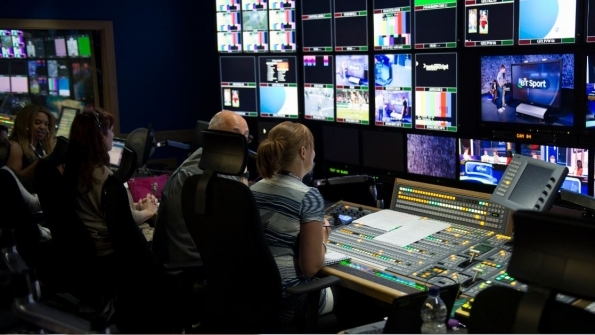Turner Entertainment Networks solves interoperability problems with AmberFin
The professional video industry's #1 source for news, trends and product and tech information. Sign up below.
You are now subscribed
Your newsletter sign-up was successful
Category
Post & network production facilities
Submitted by
AmberFin Design Team
VP tech.; Steve Higgins, R&D mgr.; Ian Briscoe, sr. software eng.
Omneon: Paul Turner, VP prod. mgmt.; Todd Brunhoff, principal software eng.
Turner Entertainment Networks: Ron Tarasoff, VP, broadcast tech. and eng.; Naveed Aslam, sr. dir.; Jack Gary, sr. dir.; John Bukowski, eng. proj. mgr.; Jason Beard, eng. proj. mgr.; Jason Duncan, BIM sys. admin.; Harry Schaefer, BIM sys. admin.; John Morgan, sr. mgr. Technology at work
AmberFin iCR 3.5 automation software
Omneon Spectrum v5.1 media server
Pinnacle MediaStream servers
Turner Entertainment Networks solves interoperability problems with AmberFin

Turner Entertainment Networks, a division of Turner Broadcasting System (TBS), began investing in Pinnacle MediaStream servers in 1997. By 2003, Turner established a robust, efficient workflow in which all promotional and commercial content would be ingested by one of six Pinnacle ingest servers then quality controlled and stored in Pinnacle file format on an EMC AVALONidm-based broadcast inventory manager (BIM).
Content on the BIM could be called up for insertion into programming played out on Turner’s channels by 16 air servers, all Pinnacle units, arranged in pods of two servers (for redundancy) and a Pro-Bel automation system per channel. Content was ingested directly from tapes loaded on a Sony Flexicart playback system. Once content played out, it was cached and sent back to the BIM for storage in Pinnacle file format, a process Turner refers to as “scavenging.”
However, when the new owners of Pinnacle, Avid, announced an end to server production in 2008, Turner knew a switch was required because of elements of the Pinnacle file standard being proprietary; it simply couldn’t leave its valuable content to become idle and eventually obsolete.
The professional video industry's #1 source for news, trends and product and tech information. Sign up below.
Though converting a Pinnacle video file for use on Omneon systems was relatively straightforward, no transcoding vendor could claim to carry out a flawless conversion of audio and metadata files. Turner also required more, with the desire to create a fast, high-quality rewrap with more attention to detail, without extra time or bandwidth — meaning Turner required files to convert 3X faster than real time.
Turner worked in close partnership with AmberFin, Avid and Omneon to pioneer a solution that involved AmberFin’s iCR software and the use of a constrained application specification of the open-source MXF file wrapper — MXF AS02, enabling a flawless conversion of Pinnacle video, audio and metadata into Omneon-compatible files.
AmberFin iCR’s advanced automation features served as the lynchpin of the entire implementation, allowing Turner to quickly build the transcoding process into an automated workflow, resulting in a server-agnostic file format, which was used indiscriminately with Pinnacle releases. As an added benefit, Turner’s Atlanta hub was then able to share content with its other playout centers.
By employing the MXF format to wrap the content, Turner was able to quickly and cost-effectively resolve its interoperability issues, enabling broadcast playout to work on several server brands — preventing its more than 200,000 Pinnacle files from becoming obsolete and saving more than 46,000 hours as well as money.
